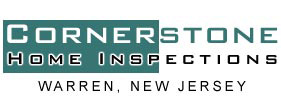Have you heard of radon? Chances are you have if you’ve ever bought a house. Typically, before you purchase a home you have the area around it tested for radon. This is a way to know whether or not you’d be in danger.

Radon can’t be seen, smelled or tasted. That said, if it’s present around you at a dangerous level, it could lead to your death! Did you know radon is the leading cause of lung cancer deaths among nonsmokers in our country? About 21,000 people a year die from radon-related health complications.
Any place people spend time in buildings, such as homes, schools and businesses, should be tested for radon. Typically, testing occurs when a place is built and/or sold to a new owner.
January was “National Radon Action Month.” In case you missed it, you can still, of course, take action in February, or any month of the year for that matter. Do research online to learn more about radon and steps you can take to keep you/your family safe. Test your home using a radon test kit, which can be obtained easily and inexpensively. Talk about radon with friends and family to help raise awareness. Encourage others to test their homes.
If you’re in the market to buy a new home, did you know there are builders who construct “radon-resistant” homes? Don’t be afraid to ask the company you plan to work with about such things.
Radon can be found just about anywhere. It comes from the natural breakdown of uranium in soil, rock and water. As a gas, it’s radioactive and can enter your lungs through the air you breathe. Before you get too scared, though, the majority of places have radon levels that are mild enough to not do you any harm. In other words, the radon levels are “within acceptable limits.” It’s those rare places where the levels are “off the charts high” where you’d want to do something to protect yourself from radon, right?
Our government’s EPA recommends people use a certified or state licensed radon tester to professionally check for radon– this is something Cornerstone Home Inspections can and will do for you.
Home inspectors check for radon on a regular basis. They know some of the key places where radon enters the home, including through cracks in the foundation and well-water coming through showerheads and faucets. Other radon entry points include construction joints, cracks in floors, gaps around piping, and cavities in walls.
If you’d like Cornerstone Home Inspections of Warren, New Jersey, to test for radon, please contact us at 1-800-648-6187.
